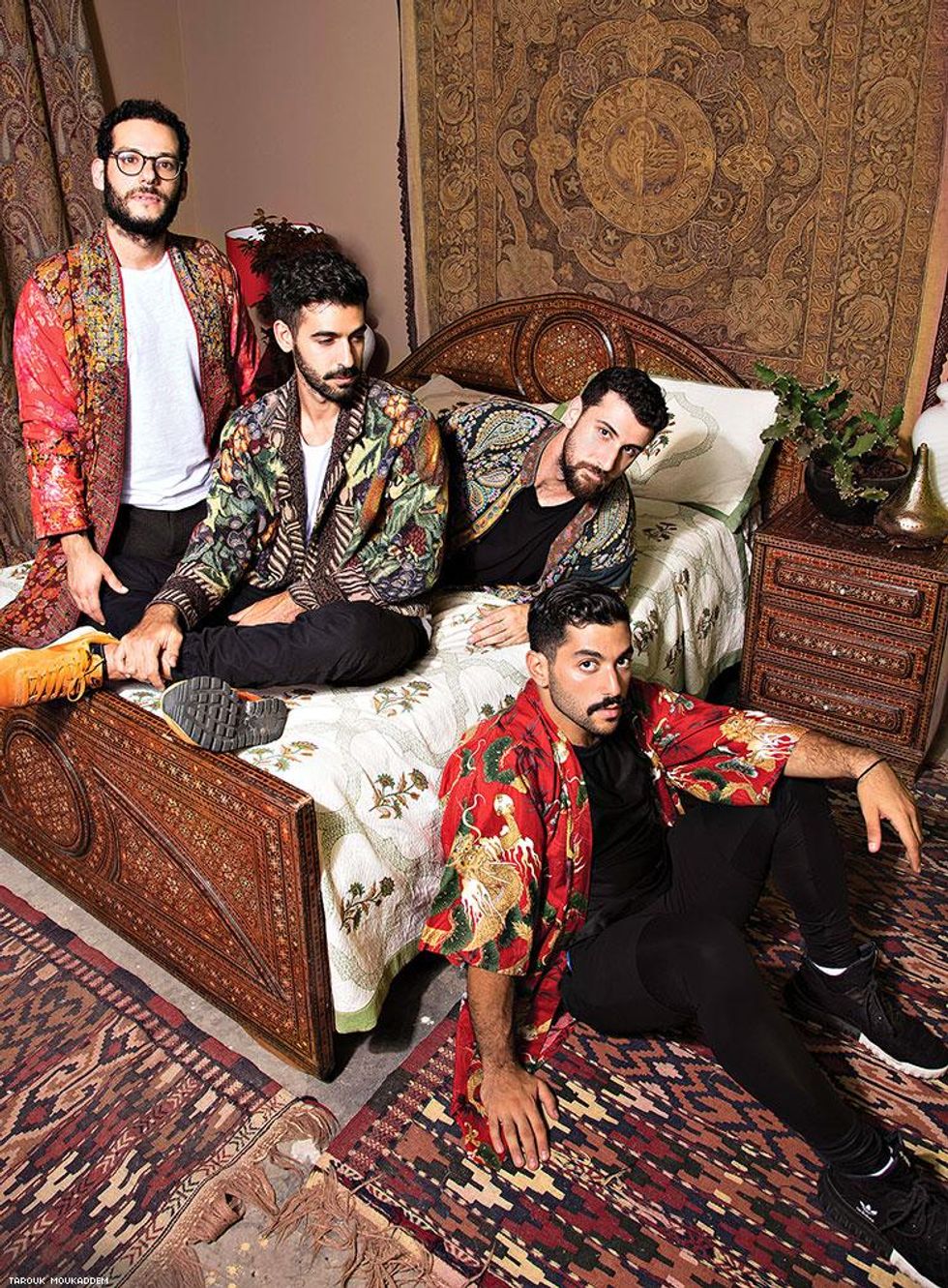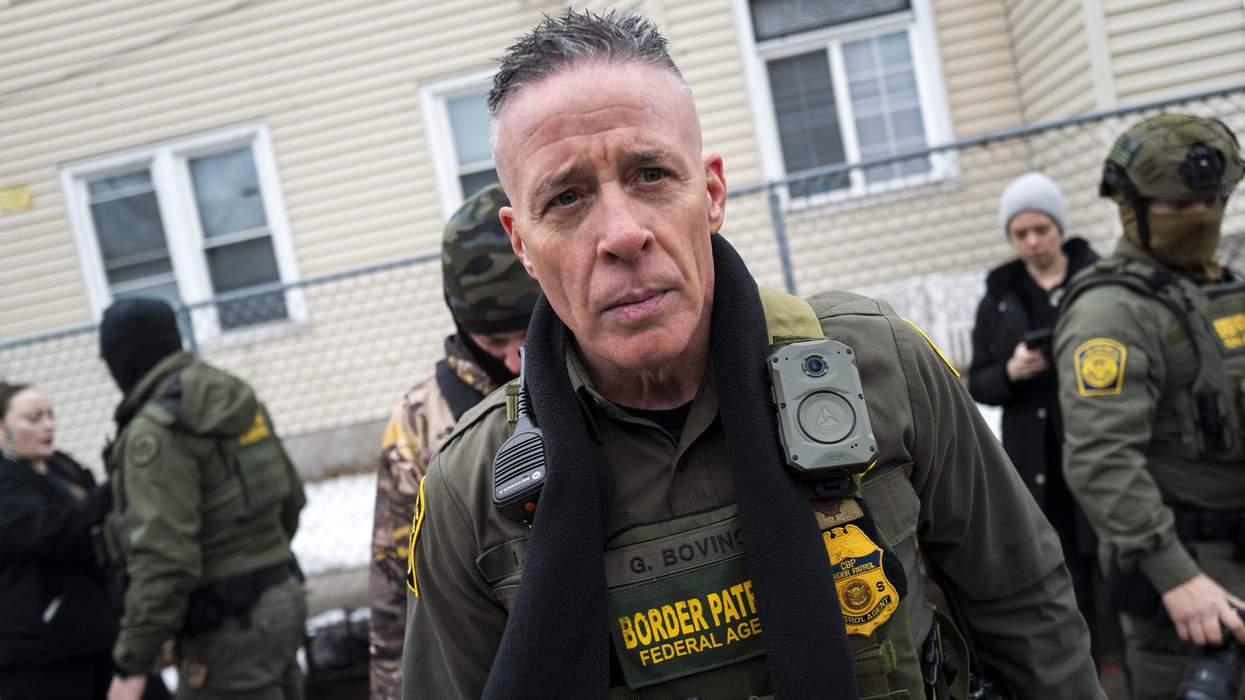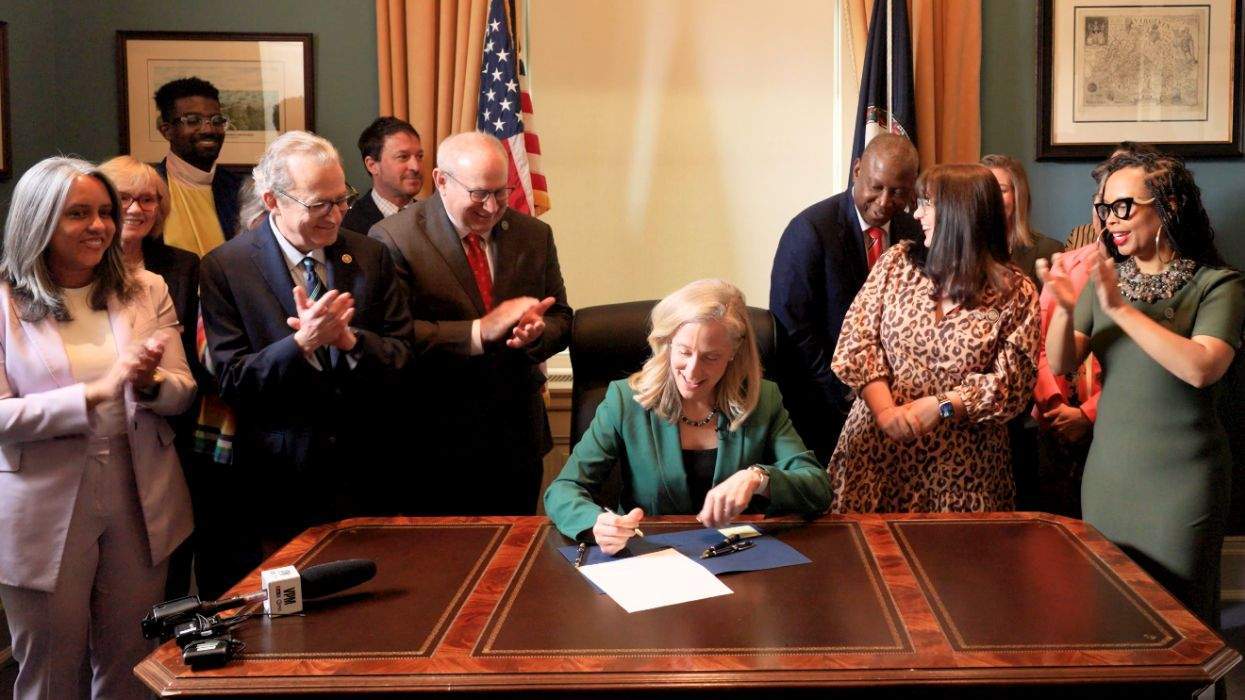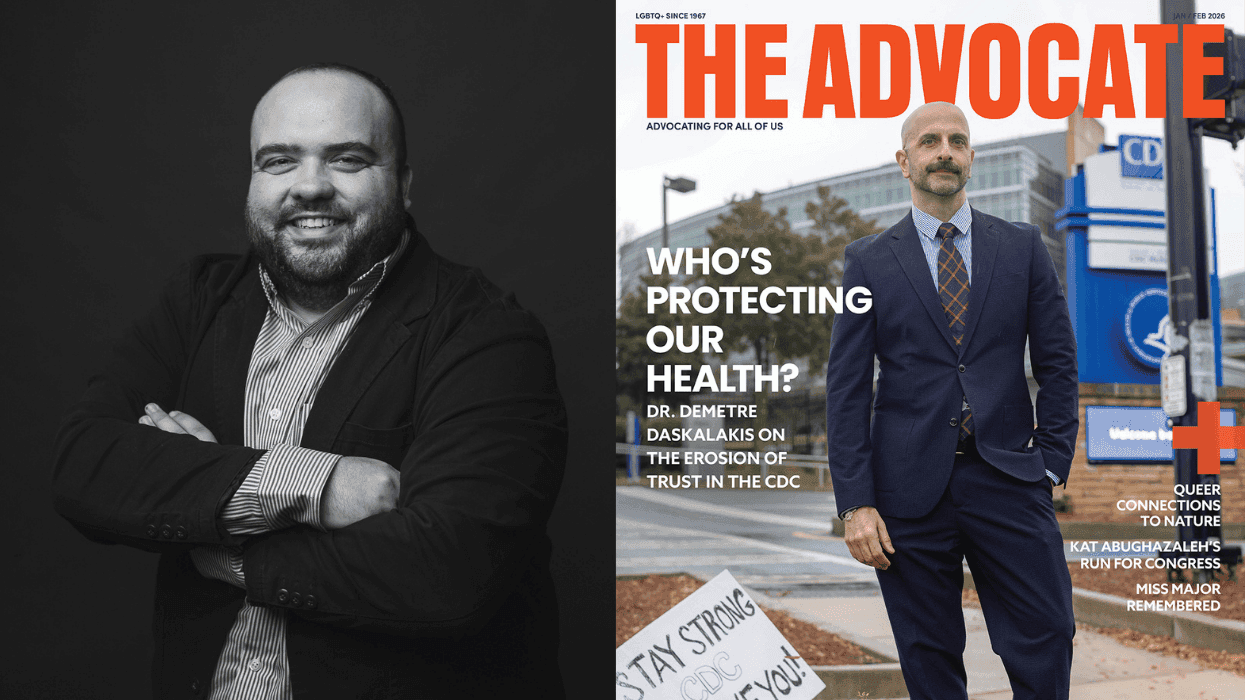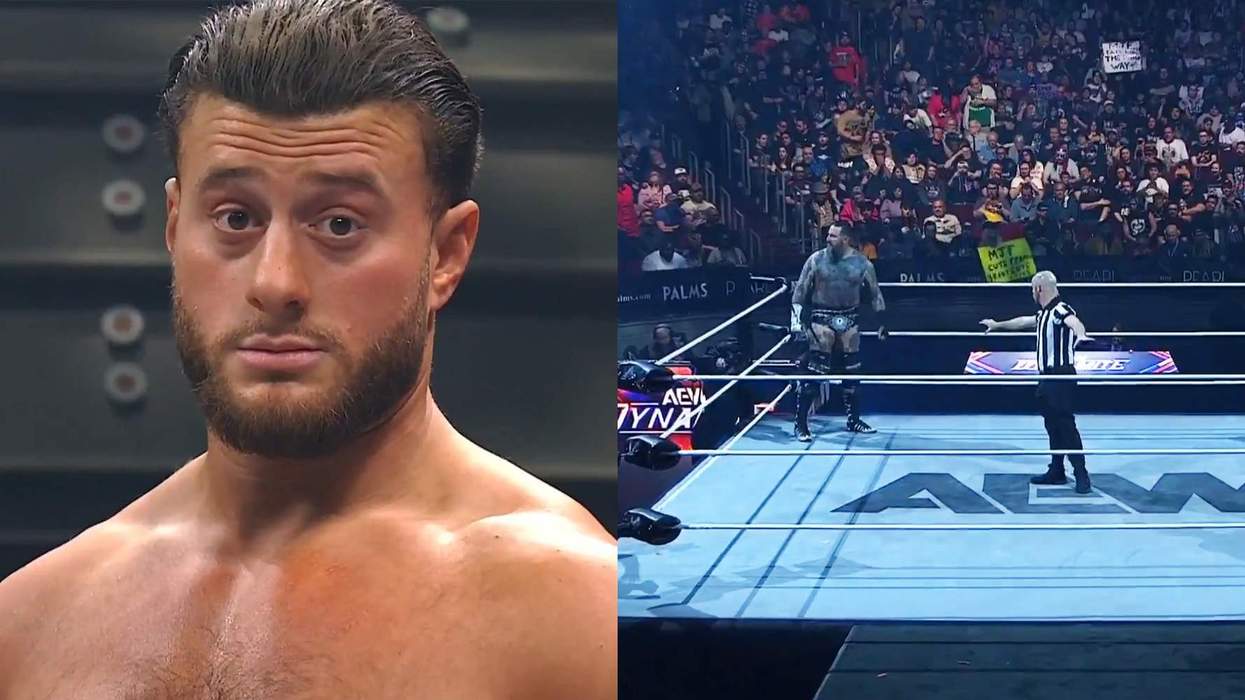In today's politicizing climate, representation tends to be a virtue. Standing up as yourself, for yourself, and with yourself, in essence, evokes a response from others to do the same. The conundrum is that it never comes without a wave of controversy.
One of the biggest alt-rock bands in the Middle East is Mashrou' Leila ("Project Night" in Lebanese), and its front man, Hamed Sinno, is unapologetically queer. Given that all of the band's songs are sung in Arabic, the Lebanese band -- with its anti-homophobia, pro-feminism messaging -- is riding a deep wave toward freer speech while challenging social norms and traditions in the region.
Its early works targeted homophobia and male predators, and questioned the social pressure for people to marry within their own religion. And in the 10 years since the band formed, it's developed a massive following crossing all borders (half a million Facebook followers and counting).
Mashrou' Leila's last album, Ibn El Leil (Son of the Night), is a clear evolution from its early sounds, having what The New Yorker calls "slippery bass grooves with lush, cinematic synths, and haunting violin melodies" -- a far cry from when it was a simple college band.
"We met in college," Sinno shares. "We were all studying in the same department: architectural design. I guess we dabbled in bands before, but we never took it seriously. A couple people in that department put up a flyer saying they wanted to get a [music] workshop going."
The workshop quickly morphed into something really special, but after realizing how much time it took away from studies, the group sifted down -- from 10 to seven, then to today's five members: lead singer Sinno, violinist Haig Papazian, keyboardist and guitarist Firas Abou Fakher, bassist Ibrahim Badr, and drummer Carl Gerges.
Sinno has been called one of the most prominent gay musicians in the Arab world, yet,despite the band's obvious messaging of tolerance and freedom, Sinno admits the message "is not very conscious" on its part.
"When we got into the studio at the beginning, the only requirement was that we wouldn't cover stuff, and we would write in Arabic," he explains. "It was something we were doing for shits and giggles. It was never supposed to become a career. We were writing very organically about whatever we were thinking about at the time."
The purpose of writing songs in Arabic, Sinno says, was its own statement to make sure people in the East knew the band's messages weren't ideas imported from Western culture, but within the Arab community itself. "I never thought we'd be playing in the United States, in Europe," he says. "The thought was if there was going to be a fight in my head, it's a fight back home. It mattered to say things in Arabic."
Singing in Arabic was also a way for reclamation: "The thing with Arabic music is that the archive has been so heavily manipulated," Sinno explains. "[The manipulation] allows people to sort of rewrite the history of Arabic music and thought as being completely -- I don't know what the word is ... this weird version of cherry-picking stuff out of Arabic history and music, Arabic thought, and Arabic politics, to serve this quasi-nationalistic purpose of 'This is who we are as Arabs.'"
To give you an idea of how big Mashrou' Leila is, the band performed for over 35,000 people alongside two other Arab rock groups at the Music Park Festival in Cairo, last fall. During its performance, Rolling Stone writes, "Fans were photographed waving a rainbow flag in solidarity with the group." But such solidarity isn't always welcome in these regions.
One of the band's songs, "Tayf" ("Ghost"), was a tribute to a Beirut gay bar that was shut down in 2013 by Lebanese authorities. In the summer of 2017, the members of parliament in Jordan protested Sinno's sexuality and ultimately prohibited the band from performing in the country. Attitudes like this have plagued Sinno most of his life.
"I was out way before the band started," Sinno says, later adding of the group, "We come from every form of privilege amongst each other. What male privilege means in a place like Beirut when you're visibly queer is a whole other story."
Still, Sinno argues, the experience of being openly queer in the Middle East parallels the experience of being a person of color in the U.S. (he's experienced racial slurs throughout his career in the States).
One night, Sinno was walking back to his hotel in Minneapolis when he passed a group of men. First, someone screamed the n word at him, adding, "Why you wearing that trench coat? You hiding a shotgun in there?'" he remembers. "I was too scared to look back ... I kept walking and they followed me around the block. I was freaking the fuck out and then I started running like a motherfucker."
Despite their critics, Sinno and his bandmates continue to write, sing, and speak truth to power. And they're not shutting up anytime soon.
"Right now in this specific moment in time when we see the world is so adverse to globalism, when everyone's retiring into these tired, inherently bigoted, homophobic, patriarchal nationalisms," he says boldly. "I'm not sure that kind of linguistic isolationism is something I'd be on board with." (MashrouLeila.com)

